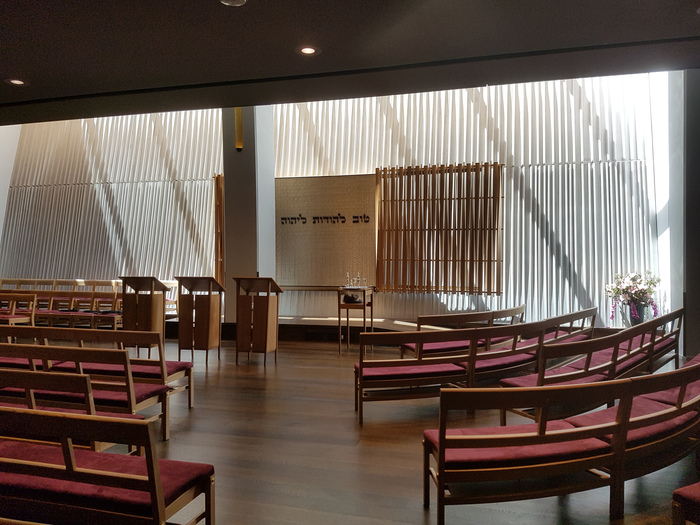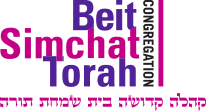
Ending Mass Incarceration
CBST is passionately committed to education, advocacy, and service to communities that face disproportionate rates of incarceration, and to assisting people who are impacted by incarceration. We want better to understand the deep legacy of racial inequality and economic injustice in this country, and the continuing impact of enslavement and Jim Crow in the present day.
Want to learn more about upcoming programs or find out about getting involved with the team? Contact Rabbi Marisa James or team leader Laurie Magid to learn more.
The United States incarcerates more of its people than any other nation on Earth. The United States has just 4 percent of the planet’s population, but 22 percent of it is imprisoned. U.S. prisons held fewer than 300,000 people in the early 1970s. Since then, that number has grown to more than 2.2 million, with 4.5 million more on probation or parole. The U.S. criminal justice system disproportionately impacts people of color–one out of every three black men will spend time behind bars–and LGBTQ+ people are disproportionately represented in the prison population. There is little support for returning citizens to rebuild their lives when they are released. Covid-19 and the immigration crisis have only exacerbated this emergency.
Volunteer
The EMI team offers a range of volunteer opportunities through our partner organizations. These have included partnering with Witness to Mass Incarceration to provide suitcases to recently released individuals with basic necessities to help them as they reenter society; supporting residents of a domestic violence shelter in Harlem at the height of the COVID-19 crisis, coordinated by Movement for Family Power, and individuals newly released from Rikers, coordinated by Exodus Transitional Community (ETC) in partnership with Central Synagogue and Congregation Beth Elohim. Team members have joined the Osborne Association as both panelists and “cheerleaders” for Virtual Career Days for teens and young adults (ages 13-25) whose parents are currently or formerly incarcerated, and members who are attorneys have mentored formerly incarcerated law students.
Become a pen pal, especially with someone who is LGBTQ+. CBST sometimes gets letters from incarcerated people, and we also find pen pals through Black and Pink.
You can help to ensure that no trans person at risk in NYC jails remains in detention before their trial by volunteering to post bail. CBST members have been trained to post – and have posted – bail, with funds contributed to the Emergency Release Fund (not your own money). Sign up to volunteer or contribute here.
Our History
In March 2019, in conjunction with Etgar 36, Rabbi Sharon Kleinbaum and a group of nearly 40 CBST members rode the trail of the civil rights movement in the American South, concentrating on the sites and stories associated with Rev. Dr. Martin Luther King, Jr., from 1955 to 1968. In Montgomery, Alabama, the site of the iconic 1955 bus boycott, we visited two remarkable institutions created by Bryan Stevenson’s Equal Justice Initiative (EJI). His legal defense organization provides representation to people who have been illegally convicted, unfairly sentenced, or abused in state jails and prisons. The National Memorial for Peace and Justice is where EJI brings to light the horrific story of lynching in the South, and the Legacy Museum traces the history from enslavement to mass incarceration in the United States. Many of us returned from our journey inspired to deepen CBST’s social justice efforts in the area of mass incarceration and criminal justice reform.
In September 2019, CBST announced the Ending Mass Incarceration Team, our initiative to learn more about and work to end mass incarceration in the United States.
In October 2019, we held a discussion group on ending mass incarceration during the afternoon of Yom Kippur on reimagining public safety. We’re grateful to CBST members Nancy Richner, Abbe Tiger, Eric Rosenbaum, Lisa Green, and Jane Spielman for sharing their wisdom, expertise, and experience with us. View slides from the discussion here.
In November 2019, we read Bryan Stevenson‘s best-selling book Just Mercy: A Story of Justice and Redemption and held a book discussion event, and in January 2020, we held a private screening of the film adaptation followed by a discussion.
In July 2020, we held a panel discussion on the documentary College Behind Bars with Bard Prison Initiative (BPI) graduates Tamika Graham and Dyjuan Tatro and BPI founder and executive director Max Kenner, moderated by Rabbi Marisa James. If you weren’t able to attend, you can watch a recording here and donate to BPI here.
We highly recommend the resources that T’ruah has collected and created for Jewish communities working to end mass incarceration.
Suggested Reading Material
